My Dad received a terminal diagnosis of pancreatic cancer on the 19th November 2015. He deteriorated rapidly and passed away on the 8th December 2015. During that time, it was incredibly challenging for our family and close friends. The speed of his deterioration was particularly challenging. It was a whole series of shocks from one day to the next. To get a terminal diagnosis is a big shock, but we initially thought that my Dad would probably have another 6 months with us. Instead, it was around three weeks.
Acceptance is a very helpful way of managing a traumatic event.
Because it happened so rapidly, it was difficult to bring acceptance to the situation. Acceptance is a very helpful way of managing a traumatic event. I saw that it helped my Dad initially when he got the terminal diagnosis. He presented the diagnosis to us in a matter of fact manner, full of acceptance. He thought, “Well, I’ve got this much time to do things” rather than “Gosh, my time is almost up.” He was appreciating being alive. He also realized that at some stage we will all pass away.
However, I realize that acceptance is needed on a regular basis, and not just a one-off event, like my Dad’s response to the initial diagnosis. Acceptance is needed on a moment-to-moment basis throughout our life. This is where mindfulness is particularly helpful because it allows us to be grounded in the present moment. There’s a sudden shock and we can pause while we are in a state of shock. We experience the sensations in our body and explore where tension in our body is being held. We focus all our attention on that tension, and this enable us to release the tension.
We focus all our attention on that tension, and this enable us to release the tension.
That helped me in terms of acceptance on a day-to-day basis. I had a sense of mini-recovery from being shocked, which gave space for acceptance to arise. Fear and despair block acceptance, so it was the practice of transcending the fear and despair through bringing the mind’s attention to the body.
The freedom from tension in my body translated to freedom from tension in my mind. I had more clarity of the implications of what was happening in our family. In particular, there was some clarity in my mind that allowed me to realize the preciousness of those moments that I still had with my Dad. I remember saying to my family more than once, “We are all still together right now. This is a precious time.”
With this mind state, I had some really wonderful moments with my mother, dad, and sister when we were together. There were moments of deeper connection that I thought might not happen with my Dad. I really cherish those times. I recall reading him stories, sitting up with my Dad six nights in a row, and making special juiced meals for him. We held hands. My dad squeezed my hand after I told him that I love him very dearly, knowing that we didn’t often share this kind of emotional connection.
In a sense, this practice of releasing the tension from the body, finding clarity of mind, and acceptance made me realize what was really important and not only that, but managing to act on it. I look back at these three weeks or so when Dad was rapidly deteriorating. There were a lot of precious moments, and I’m really thankful.
It’s unusual to be thankful of so much in such challenging circumstances, but I know it’s possible from my own experience. What I would like, more than anything, is for other people who are in a similar situation to discover this for themselves. The practice of mindfulness is the key. It’s possible to use these moments with a dying loved one wisely and find moments of deeper connection. If there’s anything we need to say, we can find a way to tell them. If there’s anything we need to share, we can find a way to share.
It’s possible to use these moments with a dying loved one wisely and find moments of deeper connection.
Since my Dad’s passing, filling my mind with gratitude has helped me to cope with my loss. Simply remembering things that I’m thankful for, especially memories of things we did together. When the mind is filled with gratitude, the despair isn’t there. But it is also to be expected that a whole series of emotions will come and go. That’s perfectly normal.
Of course, it is to see the impermanent nature of these emotions, but also to practice the art of suffering, which is in the Plum Village tradition. We find ways of getting in touch with our suffering, recognize it clearly for what it is when it comes, and fully embrace it, and then experience the transformation.
During challenging times it’s very important to have spiritual friendships and be in touch with the Sangha.
During challenging times it’s very important to have spiritual friendships and be in touch with the Sangha. If you don’t want to be connected with people and you would rather be on your own, that’s fine as long as you can handle the suffering. But if the suffering is too much – be held by a friend or the Sangha. We all need holding sometimes. I think it’s helpful to be with others and experience the community that’s available for you in those difficult times. Having a community to support us has been extremely reassuring for our family.
My father was a member of the Unitarian chapel. The support we had from them other members of the congregation was quite remarkable. People offered lifts, brought food and even offered us money. It made the situation easier. I certainly recommend building relationships within a community context because of the mutual support.
Finally, I am deeply grateful to the Plum Village practices for any insights that supported our family during this difficult time. If you encounter similar life circumstances I hope you will also find the support you and your loved ones need.



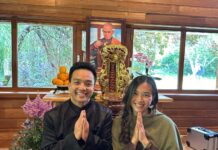

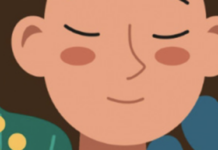


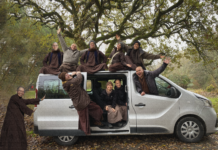







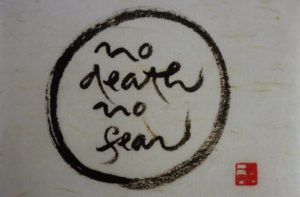
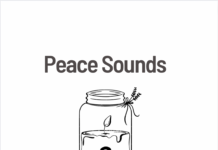

Thank you Phil. That’s beautiful.
Thank you very much Phil for your sharing.
My father was diagnosed with cancer in Nov 2014. We thought treatments might prevail but Nov 2015 he began deteriorating quickly. He passed away Dec 26th 2015. 2 days after his birthday.
I used to sit with Wake Up New York, but recently stopped attending because I joined an all age sangha. My practice was my bedrock during this difficult time & reading this made me feel like maybe I didn’t go through it alone. I feel like we were walking the path together my friend. So thank you for that.
Beautiful processor of the body and mind during difficult circumstance in our life neededly brings up practicing more often in our life. Thanks for sharing.
Thank you Phil,
I am deeply touched by your sharing.
Thank you, such a lot of deep connection and beauty in your sharing.